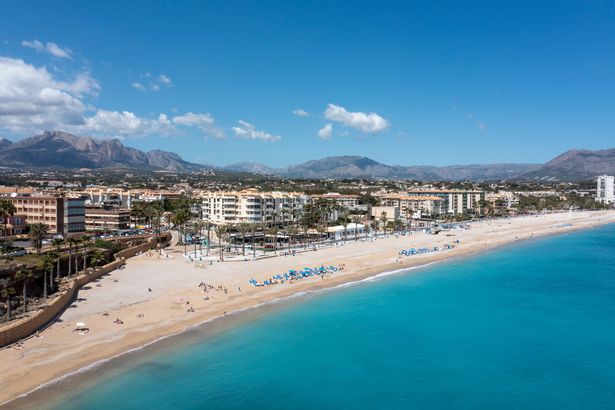Sun-worshipping Brits jetting off to Spain have been urged to check their travel money as one specific banknote is likely to be rejected by shops and bars after being slowly ‘phased out’
Brits flocking to Spain this year have been warned over a common banknote that is being ‘phased out’. Despite escalating anti-tourist sentiment, the country is bracing for a hectic summer – as swathes of holidaymakers appear to be undeterred by the string of protests that erupted across the nation last year.
While you may be used to relying on your contactless bank card in the UK, many tourist hotspots in Spain still prefer cash. However, if you’re heading to your local travel agents ahead of your holiday – it might be worth requesting you aren’t given any €500 notes.
This specific type of currency had its production halted several years ago by the European Central Bank and the Bank of Spain due to to link with ‘criminal activity’. “They are used for money laundering, so no one likes to accept them,” one local claimed on Reddit.
READ MORE: Huge £2.5m crisis in European holiday hotspot as hotels told to take action
While the purple note, worth around £418.24, is still legal – EuroWeekly warns they’re getting ‘increasingly difficult to use or deposit’. “Many shops no longer accept them,” the publication added.
Despite no new versions of the €500 having entered the country in over five years, many of them remain in circulation. If you end up with one while holidaying in Spain, you will likely have to get them exchanged at the bank.
“All the banknotes of the first series are gradually being replaced by the Europa series banknotes,” states Banco De Espana. “However, they are all still legal tender, including the €500 banknote which has no longer been issued since 2019. The fact that they are legal tender means that they can be used as a means of payment and a store of value (i.e. to purchase and save).”
The one and two-cent Euro coins are also reportedly under threat, with many European countries including Belgium, Netherlands, and Slovenia already halting production of the small denominations. Although no bank has officially announced the coins are being phased out in Spain, it is believed such proposals are being discussed with the ECB.
Want the latest travel news and cheapest holiday deals sent straight to your inbox? Sign up to our Travel Newsletter
Currency rules aren’t the only thing Brits need to be aware of before jetting off to sunny Spain. Just last week, the iconic L’albir Beach – which is just 13 minutes away from the party-mad resort of Benidorm – announced a huge new beach ban.
Before the summer influx kicks in, Brits found smoking on the 600-metre pebbly shore will risk a hefty fine. It comes after the town’s mayor Vicente Arques Cortés green-lighted the rule to clamp down on plastic pollution. “This measure is part of the council’s policy to position ourselves as a benchmark for healthy international tourism,” he added.
Similar restrictions were implemented on Benidorm’s Levante and Poniente beaches last summer and come after local authorities in the country were given the power to ban smoking on public beaches and fine offenders back in 2021. According to the Sun, anyone caught flouting the strict rules could be fined up to €2,000 (around £1,700).
Do you have a story to share? Email us at [email protected] for a chance to be featured.





















